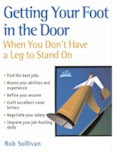What If You Haven’t Identified Your Passion?
This is a very real issue for many people. If you truly aren’t sure what you are passionate about, think about all the projects you’ve been involved with as well as your related accomplishments. Then, ask yourself these questions:
• When did I feel the most energized?
• When did I feel the most drained?
The key to a happy and fulfilling professional life is to find a career in which you can do more of what energizes you and less of what drains you. No doubt, this sounds like common sense. Nevertheless, it’s amazing how many people don’t think in these terms. But, most likely there are certain projects in which you can immerse yourself and completely lose track of time. There are other activities—including some at which you excel—that you may absolutely dread doing. For this reason, it’s critical to look beyond your skills to your actual interest level.
A Reason to Believe
Once you’ve traced your passion and you can describe the origin of your interest, you have completed the first, critical step in the self-assessment process. But it doesn’t stop there. Your next challenge is to show what you’ve achieved as a result of your passion. In other words, what have you done that gives a potential employer reason to believe you will be successful in your chosen field?
Creating a Journal
To answer the question above, it’s important to create an inventory of specific experiences you can use to support your case. It may take some time to remember details of those experiences, but the good news is you only have to do it once. After that, you can add to it as you go along. This way, keeping the journal just becomes a matter of maintenance.
Keep Your Journal on the Job
The need to quantify your accomplishments does not end when you get a job offer. Quite the opposite. In order to earn raises and promotions, it’s incredibly important to keep track of your accomplishments on an ongoing basis. Keep a list of every project you work on and highlight the ones where your efforts had a direct, positive impact. It may sound like a lot of work, but it really isn’t. Just keep your journal nearby and jot down the key details. That way, you won’t have to rely on your memory a few months or years from now when the facts won’t be quite as clear.
The first entries in your journal will address the following:
1. Make a list of any time you have ever been recognized for an accomplishment. Go back as far as you can.
• What, specifically, did you do?
• If you received an award, how many people were eligible?
• What was special about your performance or achievement?
• How old were you at the time?
This is an important category because it forces you to acknowledge yourself for the accomplishments that others valued. For example, if you were elected or appointed to serve in a particular role, it says a lot how people view you and your performance. Or perhaps you earned a promotion faster than anyone else in the company’s history. If so, that can be a selling point on its own because it gives people a favorable comparison between you and other people who received the same promotion but took more time to earn it.
The recognition you receive from others is tremendously valuable because it provides a third-party assessment of your skills and abilities. It’s like having the person in the room telling the interviewer what a great job you did. Better still it’s factual. You don’t have to say how great you are when the facts speak for themselves.
2. When friends, family, co-workers, and others come to you for advice or assistance, what, specifically, do they need?
If you don’t know the answer to this question, start keeping track. Friends and family are almost always better at recognizing our talents than we are. By opening our eyes to the way others already see us, we are forced to acknowledge our unique contributions. The more we do this, the better able we’ll be to counteract all those years of programming in which we denied and doubted our abilities. Thus, building an awareness and appreciation of our gifts is an important step in developing the unshakable belief in ourselves that we need to speak confidently, using relevant, believable examples, and without worrying about bragging. In the words of legendary Major League pitcher Dizzy Dean, “It ain’t braggin’ if you kin do it."
3. Think back on all the projects (work-related and personal) on which you’ve been involved. What is different because you were there? What did you bring to the table that otherwise would never have occurred?
In other words, how is the result better because you were on the team?
I like to think of this as the “It’s-A-Wonderful-Life-Approach” to the self-assessment process. In the movie, George Bailey, the main character, was given the chance to see how the world would have been different if he had never been born. In a very real sense, that’s exactly what I’m asking you to do. It’s the best way I know to get people to think about—and acknowledge—their achievements. As an added bonus, you’ll get a much-deserved boost in confidence because you’ll see just what a difference you actually make in this world. Later, when you’ve built a substantial inventory of contributions, matching your specific experiences with the needs of a particular employer will be easy. And, you’ll be that much closer to convincing an employer of the difference you can make for their company.
Friday, May 4, 2007
Subscribe to:
Post Comments (Atom)

.jpg)
No comments:
Post a Comment